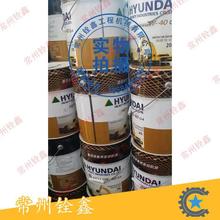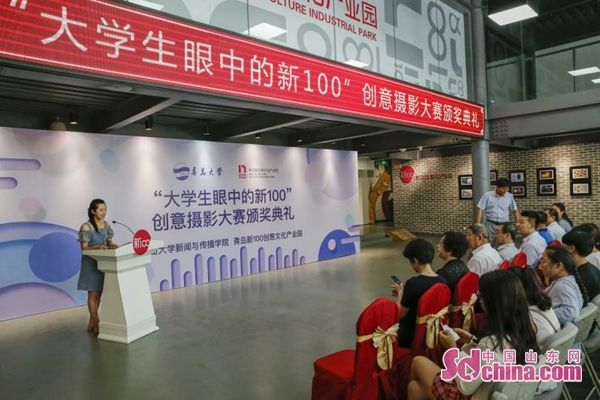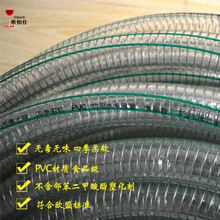Google I/O 2017 was boring, and that's bad news for innovation
Trust me, I never thought it would come to this. If you had asked me a week ago what I was expecting from Google's I/O developer conference, "boring" is not the word that would've come to mind.
Yet, looking at this year's announcements, I'm struck most by how completely expected and, well, safeit all is. Sure, Google Lens was far and away the best thing Google previewed here, and a standalone VR headset is particularly enticing if you're a VR enthusiast (so far a pretty small, self-selecting group).
SEE ALSO:Google's Assistant app for iOS is a clunky messBut none of that is exciting or especially innovative. Google Lens is just a rehashed version of Google Goggles (albeit slightly more useful), and we've been hearing rumors about Google's standalone VR headset for well over a year.
Boring, right?


Most boring @google #io17 ever
— Ilia 🕶 Daraselia (@idaraselia) May 17, 2017
All this #politics stuff is crowding out Google #IO17. Google is kind of a boring company these days, at least to me. Been there, done that.
— Jake Hamby (@jhamby) May 18, 2017
Suddenly #io17 has become an infomercial of Google home. A beta product only available in US. #boring
— Imanol Pérez Iriarte (@ipereziriarte) May 17, 2017
Right. That wasn't always the case. It wasn't that long ago when Sergey Brin enlisted a group of skydivers to introduce the world to Google Glass. Or when Google's Advanced Technology and Projects (ATAP) division, the skunkworks behind moonshot ideas like modular smartphones, gesture-sensing radar, and clothing with embedded sensors, was a reliable source of shock and awe for I/O attendees.
This year, though, there was no sign of ATAP, which lost its chief visionary Regina Dugan to Facebook last year.
It's not just ATAP, either. There was no sign of anything remotely experimental. Instead, we got to see the most polished version of Google's augmented reality tech yet (which, by the way, started in ATAP nearly four years ago), new skills for Google's digital assistant, VR features we don't really need, and yet another fine, but also boring, update for Android.
Lost in all the announcements is the part of Google that used to be daring.
Don't get me wrong: None of these things are, in themselves, bad. Tango technology stands to be a truly valuable learning tool, Google's Assistant is starting to look like it could finally fulfill the wasted potential of Google Now, and Android O appears to be a solid, if unremarkable, update. Great.
The fact is, Google needs these services to be reliable and good and that's exactly what it's trying to deliver. But lost in all that is the part of Google that used to be daring -- the Google that was unafraid to take risks, "do epic shit," and show off crazy ideas that might never end up working outside of Google's research labs.
You could argue that Google has outgrown its moonshots. Google X, Alphabet's moonshot factory, has reportedly been reorganized amid a broader cost-savings effort. After all, the company doesn't make billions of dollars a year because it partnered with Levi's to make an app-enabled jacket or because it cracked the code on positional tracking in virtual reality.
But it's exactly projects like these -- the wild, futuristic, epic shit -- that makes Google... well, Google.
Google Glass was an abject failure and, yet, here we are a few years later and seemingly every major tech company is salivating over augmented reality. Alphabet's self-driving car arm, Waymo, is reportedly a mess, but would autonomous-car technology be where it's at now if every car and tech company in the world wasn't racing to keep up with Google in the first place? Project Ara's modular smartphones are dead (and, if we're being honest, were never remotely realistic in the first place) but in an era when all our smartphones are near-identical slabs of glass and metal, it was the last truly innovative imagining of what a smartphone could be.
All of these things will have a noticeable and lasting impact, even if it's not immediately obvious. And it was all possible because of a culture that encouraged its employees to move fast and take risks. Maybe that hasn't changed still, but you wouldn't know it from walking around the company's biggest event of the year.
You'd be bored, just like me.
Featured Video For You
This lightbulb levitates and could last up to 22 years
相关文章
 【来源】学习强国2024-09-21
【来源】学习强国2024-09-21 增城龙须菜热销北京上海!7元一斤采购商抢着订_南方+_南方plus连日来,广州市增城区派潭镇新高埔村种植的几百亩龙须菜进入采收期,掐尖、打捆、堆放、入库、称重、装车……每天蒙蒙亮,由该村高排合作社、新2024-09-21
增城龙须菜热销北京上海!7元一斤采购商抢着订_南方+_南方plus连日来,广州市增城区派潭镇新高埔村种植的几百亩龙须菜进入采收期,掐尖、打捆、堆放、入库、称重、装车……每天蒙蒙亮,由该村高排合作社、新2024-09-21 广州花城广场一抹红,“清远好风土”为游客送上新年祝福_南方+_南方plus1月20日,在花城广场游玩的游客们惊喜地发现,花城广场的落地LED屏上,清远五大百亿农业产业ip形象逐一亮相,为广州市民与游客2024-09-21
广州花城广场一抹红,“清远好风土”为游客送上新年祝福_南方+_南方plus1月20日,在花城广场游玩的游客们惊喜地发现,花城广场的落地LED屏上,清远五大百亿农业产业ip形象逐一亮相,为广州市民与游客2024-09-21 中国山东网青岛7月12日讯 7月12日上午,“大学生眼中的新100”创意摄影大赛颁奖典礼暨优秀作品展在新100创意文化产业园一楼大厅内隆重举行。本次大赛旨在通过大学生群体的时尚2024-09-21
中国山东网青岛7月12日讯 7月12日上午,“大学生眼中的新100”创意摄影大赛颁奖典礼暨优秀作品展在新100创意文化产业园一楼大厅内隆重举行。本次大赛旨在通过大学生群体的时尚2024-09-21
Students get free entry at second Rawalpindi Test but what’s the catch?
ListentoarticleThe Pakistan Cricket Board (PCB) has announced free entry for students to the second2024-09-21
招商银行青岛分行 强化老年人金融权益保护 推动解决“数字鸿沟”
中国山东网—感知山东网3月18日讯老年人是社会的宝贵财富,老龄事业需要社会企业的深度参与和协力推动,关心支持老龄事业发展是金融企业义不容辞的责任和义务。招商银行青岛分行主动聚焦老年人日常生2024-09-21

最新评论